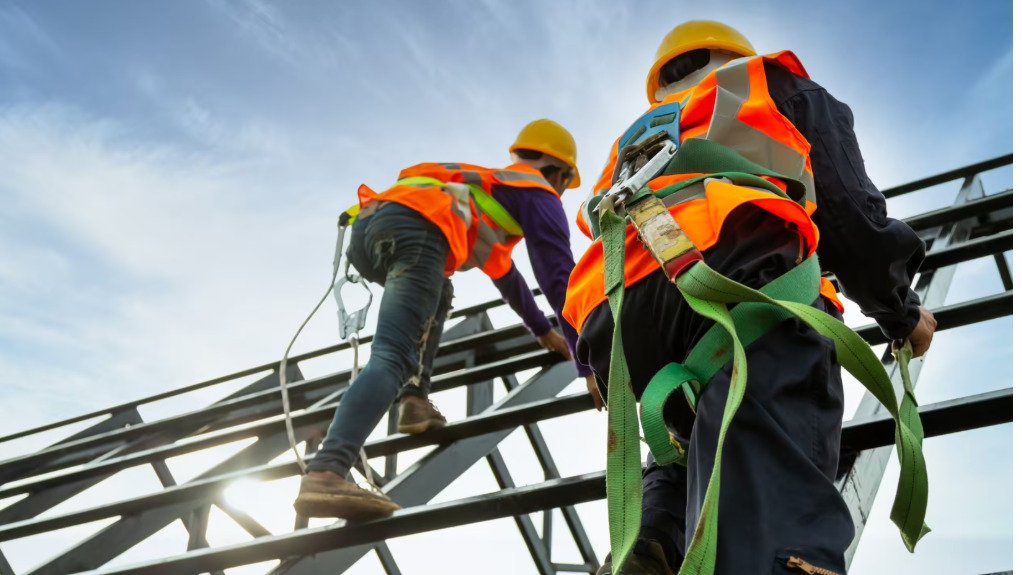Institute warns of looming change in standards


STANDING FOR STANDARDS The Institute for Work at Height continues its efforts to maintain some form of standardisation in the sector
As the unit standards of the current National Qualifications Framework (NQF) expired in June 2023, with the last enrolment of NQF learners expected in June 2024, professional body Institute for Work at Height (IWH) continues its efforts to maintain some form of standardisation in the sector.
As a result of its persistence, the Quality Council for Trades and Occupations (QCTO) will allow for regulatory skills, such as those for the work at height industry, to be registered on the QCTO’s database, says IWH CEO Dr Alti Kriel.
“Our application for about 40 regulatory skills programmes has been submitted and we are awaiting the outcome, but the industry remains unsure about what is going to happen at the end of June, with the QCTO registrations yet to be finalised,” she adds.
The other most pertinent challenge is the dearth of communication between IWH and The Department of Employment and Labour (DEL), with the latter not addressing the two most imminent concerns yet.
“Firstly, the DEL needs to indicate who will be responsible for licensing of regulatory skills programmes in the future.”
The second concern pertains to whether the regulations will be amended and what will happen in the interim, owing to the new regulatory skills programmes not being registered under the NQF anymore, she points out.
Although the current economic climate does have a substantial impact on the industry and its ability to secure projects, “people still need to work at height and, thus, the economic constraints have had limited impact on the IWH”, says Kriel.
“However, it does have a notable impact on our members, and as such, a lot of members have had to retrench staff or even had to close their doors.”
Owing to the ripple effect felt by the working at height sector, there has been a marked increase in insufficiently trained and unqualified work at height practitioners being allowed to operate in South Africa.
This is largely attributed to unscrupulous training providers continuing to operate because of the “ongoing chaos” in the training regimes, as well as insufficient coordination among the various statutory bodies.
“As a non-statutory body, we can only advise the public and industry to look out for feigned providers and misrepresented certifications,” Kriel says.
Towards Uniformity
In response to this issue, the IWH offers its “validate a practitioner” service on its online portals and cellphone applications.
“Although the validation service has made it more difficult for candidates to issue fraudulent certificates, there will always be providers who incessantly take short cuts, especially when it comes to pricing for training,” Kriel adds.
Providing proper quality assurance of training and the issuing of credible licences within a suitable timeframe after the training has been concluded, is still a struggle.
Employees, such as plumbers, electricians and builders, among others, often need an additional, working-at-height-related, high-risk skill to perform their job safely. These high-risk skills need swift training and proper quality assurance as it can lead to injuries and even death.
The training must be conducted by accredited, reputable training providers using correct and compliant equipment, which, in general, is quite expensive, albeit the need for a licence to operate is imperative, says Kriel.
“There needs to be a renewed sense of urgency so that quality assurance of the training can be undertaken by the IWH retrospectively,” Kriel urges.
She says the institute is assessing the possibility of registering as an international body, similar to its international counterparts such as the International Powered Access Federation, and Prefabricated Access Suppliers’ and Manufacturers’ Association.
This initiative will be aimed especially at the African market, as African countries cannot afford the European cost of certification and licensing.
She enthuses that IWH is already recognised in countries such as Ghana, Kenya, Nigeria and Madagascar.
“It will make sense to extend our scope further into Africa; the board of IWH is deliberating on this and will make an announcement later this year,” Kriel notes.
Other Industry Concerns
Kriel warns that, besides the direct impact of the slower economy and lack of projects in the construction sector, the secondary impact on the general condition of the South African machine array for mobile elevating work platforms (MEWPs) is even more concerning.
“We have seen a marked deterioration in the condition of work-at-height machines, including MEWPs, with an increased number of very old, used machines being imported rather than new units.”
In addition, less attention has been paid to maintaining MEWP fleets in general and, as a result, there has been a marked increase in reported accidents and general machine failures.
Comments
Press Office
Announcements
What's On
Subscribe to improve your user experience...
Option 1 (equivalent of R125 a month):
Receive a weekly copy of Creamer Media's Engineering News & Mining Weekly magazine
(print copy for those in South Africa and e-magazine for those outside of South Africa)
Receive daily email newsletters
Access to full search results
Access archive of magazine back copies
Access to Projects in Progress
Access to ONE Research Report of your choice in PDF format
Option 2 (equivalent of R375 a month):
All benefits from Option 1
PLUS
Access to Creamer Media's Research Channel Africa for ALL Research Reports, in PDF format, on various industrial and mining sectors
including Electricity; Water; Energy Transition; Hydrogen; Roads, Rail and Ports; Coal; Gold; Platinum; Battery Metals; etc.
Already a subscriber?
Forgotten your password?
Receive weekly copy of Creamer Media's Engineering News & Mining Weekly magazine (print copy for those in South Africa and e-magazine for those outside of South Africa)
➕
Recieve daily email newsletters
➕
Access to full search results
➕
Access archive of magazine back copies
➕
Access to Projects in Progress
➕
Access to ONE Research Report of your choice in PDF format
RESEARCH CHANNEL AFRICA
R4500 (equivalent of R375 a month)
SUBSCRIBEAll benefits from Option 1
➕
Access to Creamer Media's Research Channel Africa for ALL Research Reports on various industrial and mining sectors, in PDF format, including on:
Electricity
➕
Water
➕
Energy Transition
➕
Hydrogen
➕
Roads, Rail and Ports
➕
Coal
➕
Gold
➕
Platinum
➕
Battery Metals
➕
etc.
Receive all benefits from Option 1 or Option 2 delivered to numerous people at your company
➕
Multiple User names and Passwords for simultaneous log-ins
➕
Intranet integration access to all in your organisation


















